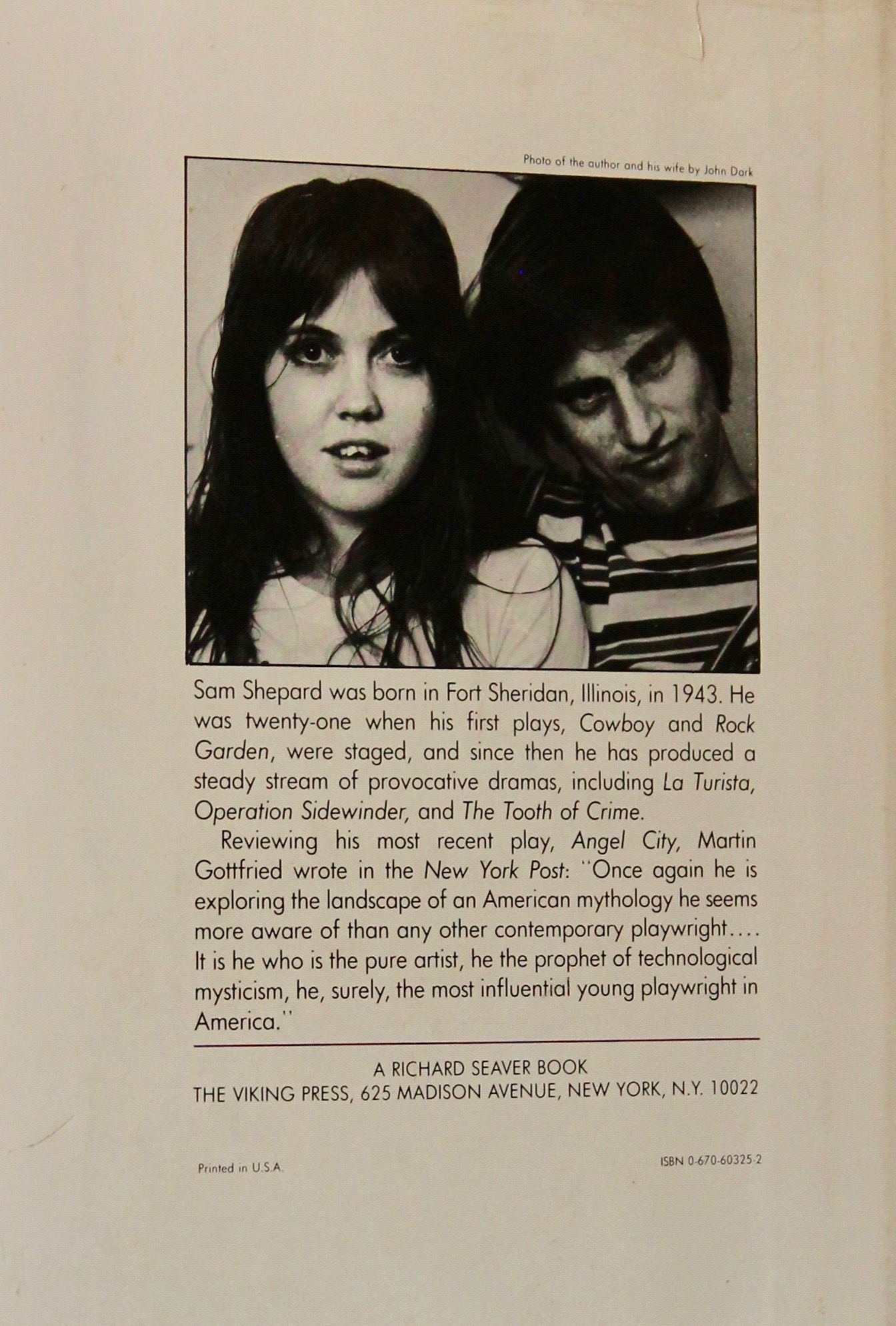When you think about storytellers who truly made a mark, Sam Shepard often comes to mind. He was, you know, a figure who shaped how we look at American narratives, whether on a stage or a big screen. His unique voice, which was quite powerful, really resonated with audiences and left a lasting impression on the artistic world. He had a way of seeing things that felt both intensely personal and, at the same time, incredibly universal, a bit like looking through a window into someone's soul, yet seeing your own reflection there too.
Shepard was, in a way, a true artistic chameleon. He wasn't just someone who put words on paper for plays; he also stepped into the spotlight as an actor and took charge as a director. This blend of talents meant he understood stories from every angle, from the initial spark of an idea to how it felt to deliver a line or guide a scene. It's almost as if he could feel the pulse of a story in his very bones, giving his creative output a rare depth.
His creative output was, frankly, quite something. He penned nearly sixty plays, which is a remarkable number, along with a collection of short stories, various reflections, and personal accounts. This vast body of work, you know, shows how much he loved telling tales and exploring different ways to share them. His distinctive approach to putting words together, mixing poetic moments with plain speech, helped define the unique visual style seen in many films he touched.
Table of Contents
- Who Was Sam Shepard?
- What Made Sam Shepard Writing So Distinctive?
- The Poetic Heart of Sam Shepard Writing
- How Did Sam Shepard Writing Change Over Time?
- Was Sam Shepard Writing Influenced by Postmodern Ideas?
- Where Was Sam Shepard Writing Showcased?
- The Global Reach of Sam Shepard Writing
- The Lasting Impact of Sam Shepard Writing
Who Was Sam Shepard?
Sam Shepard was, basically, a truly American creative spirit. He was known for his work as a writer for the stage, someone who guided actors, and also a person who performed roles himself. His contributions to the arts were recognized with many significant honors, including a Pulitzer Prize for his theatrical work, which is a pretty big deal. He also collected ten Obie Awards for his contributions to writing and directing, more than anyone else in those fields, so you know, that's quite a lot of recognition for his efforts.
To give you a clearer picture, here are some quick facts about this remarkable individual:
| Full Name | Samuel Shepard Rogers III |
| Occupation | Playwright, Director, Actor, Author |
| Nationality | American |
| Notable Awards | Pulitzer Prize for Drama, 10 Obie Awards |
As his professional path unfolded, Sam, you know, started looking into other ways to express himself creatively with more regularity. This meant he had a bit less time to put his full attention on the theater. He was always exploring, always pushing the edges of what he could do, which is, in some respects, what made his work so exciting and unpredictable.
What Made Sam Shepard Writing So Distinctive?
When Sam Shepard first came to New York, he spent a lot of his hours reading the works of other play makers. He also started putting together short pieces he called "rock and roll" plays. These early works, you know, often focused on just one key happening. The people in these plays would often talk past each other, or they might launch into very long speeches, which, in a way, made the conversations feel very raw and real, almost like you were overhearing something intensely personal.
His unique way of putting words together, which frequently blends elements of poetic verse and straightforward storytelling, played a big part in shaping the kind of cinematic worlds he created. It's almost as if his written words had a visual quality to them, easily lending themselves to the big screen. This style, basically, gave his stories a kind of dreamlike yet grounded feel, making them very memorable. So, you might say, his writing had a very particular rhythm and sound to it.
The Poetic Heart of Sam Shepard Writing
There's something about Sam Shepard writing that feels very much like poetry, even when it's just plain dialogue. He had this remarkable gift for making everyday speech sound profound, or, you know, giving a simple exchange a deeper resonance. This blending of the poetic with the practical is a hallmark of his creative voice, giving his pieces a unique texture that really sticks with you. It's like he could find the hidden song in ordinary words, making them sing on the page and on the stage.
His approach to storytelling, you see, often involved mixing things up, putting different ideas side by side that might not seem to fit at first. He would borrow ideas and make references to other works, which, in a way, added layers of meaning to his own stories. This technique made his writing rich and full of connections, inviting audiences to think a little deeper about what they were experiencing. It's a style that, frankly, rewards close attention.
How Did Sam Shepard Writing Change Over Time?
As his career moved forward, Sam Shepard's writing, you know, began to show a growing interest in other forms of creative work. He didn't just stick to plays; he started putting more energy into acting and directing films, which naturally meant he had less time to devote to the theater. This shift, basically, shows a natural progression for a curious mind, always seeking new ways to express ideas and reach different audiences. It's pretty interesting to see how an artist's focus can broaden over the years.
His sharpest rise to prominence came during the late 1970s and early 1980s. This was the period when he received the Pulitzer Prize for his intense depiction of an American family, a story that really shook people. This recognition, so, cemented his place as a major voice in contemporary storytelling. It was a time when his unique perspective on the challenges and struggles of family life truly captured the public's attention and, in some respects, defined a certain era of American drama.
Was Sam Shepard Writing Influenced by Postmodern Ideas?
Because he used theatrical methods that have been linked to a specific kind of modern theater, Sam Shepard is often spoken of as a playwright who fit into that category. His techniques for the stage, certainly, share a lot with those used in that particular style of theater. His depiction of what is real on stage often felt like it had many layers and was broken into pieces. The people in his plays, too, sometimes seemed to share inner thoughts or change their identities, which, you know, made for a very different kind of viewing experience.
A good example of his skill in this area is his play *Buried Child*, which came out in 1978. With this work, Shepard really showed off his writing abilities by earning the Pulitzer Prize for drama. This play, basically, truly launched his career into a new orbit. It was a powerful piece that showcased his ability to craft stories that were both unsettling and deeply moving, leaving a lasting impression on those who experienced it. It’s almost as if he was asking us to look at reality in a completely fresh way.
Where Was Sam Shepard Writing Showcased?
Sam Shepard's plays found their way onto stages both big and small, from the well-known theaters in New York to all the main local American playhouses. This widespread presence, you know, meant that many people across the country had a chance to experience his stories firsthand. His work was, in a way, a staple of the American theater scene for quite some time, reflecting the varied experiences of people from different walks of life. It really showed how much his stories resonated with a broad audience.
His works are also widely performed and studied across Europe, especially in places like Britain, Germany, and France. They found both a popular following and a scholarly audience there, which is pretty remarkable. This means his writing, you know, crossed borders and spoke to people from different cultures, showing the universal appeal of his themes and characters. It's not every writer whose words travel so well and find such a welcoming reception far from home.
The Global Reach of Sam Shepard Writing
The fact that Sam Shepard's plays are so well-received internationally speaks volumes about the impact of his writing. It’s more or less a sign that his exploration of human nature, family ties, and the American spirit resonates far beyond his home country. People in different parts of the world, you know, find something in his stories that connects with their own experiences, proving that good storytelling truly has no boundaries. His work, basically, became a kind of shared experience for theatergoers and students everywhere.
In a collection of seventeen original pieces, you can really get a sense of the breadth and depth of his creative output. These works, you know, offer a good look at his evolving style and the persistent themes he returned to again and again. It’s pretty clear that his writing had a certain flexibility, allowing for other artists to add their own creative touches. This openness, in a way, made his pieces even richer, as directors and actors could bring their unique interpretations to his powerful words.
The Lasting Impact of Sam Shepard Writing
Thinking about Sam Shepard's writing process, there are interviews that give us a peek into how he worked. For example, there's a 1996 chat he had on National Public Radio's "Fresh Air," and another conversation with the Paris Review where he talked about how he put his stories together. These discussions, you know, offer a little window into the mind of a writer who was deeply committed to his craft. They give us a sense of his dedication and, in some respects, his very personal connection to the act of creating.
The Sam Shepard papers, which are kept in an archive, give us a wonderful look at his creative journey. They include things like his personal notebooks, early versions of his works, final printed copies, movie scripts, play scripts, materials used for productions and getting the word out, letters, printed items, pictures, and the various honors he received. This collection, you know, belongs to the American writer, author, and performer Sam Shepard. It’s pretty cool to see all the pieces that made up his creative life, from the first spark of an idea to the finished product.
One interesting story comes from a director who worked on Sam Shepard's writing. This director said it was quite a thing to be working on a piece for Shepard. You might say, 'Well, I thought you might do something like this,' and you'd look at him, and you'd know he was being so polite. But, you know, he'd be looking at you, probably thinking, 'Kid, I could have written this so much better than you did.' And he might even add, 'Check my Pulitzers if you don't believe me,' which, frankly, shows a certain confidence in his own abilities, and why not, given his accomplishments.
His final work, "Spy of the First Person," which came out just a few months after Shepard passed away, doesn't offer any simple answers. But it does, you know, remind us why its creator was so determined to seek them out all the same. It’s a reflection of a mind that was always questioning, always searching for deeper truths, even at the very end. This piece, basically, serves as a poignant reminder of his enduring curiosity and his relentless pursuit of meaning through his words.
This article has explored the remarkable world of Sam Shepard writing, touching upon his extensive body of work, his multiple artistic roles as a playwright, director, and actor, and the significant awards he earned, including the Pulitzer Prize and numerous Obie Awards. We looked at his unique writing style, which blended poetry and prose, and how his stage creations often featured layered realities and transformative characters. The discussion covered his early "rock and roll" plays in New York, his evolution into other creative avenues, and his connection to postmodern theatrical techniques. We also highlighted the wide reach of his plays, performed across American theaters and internationally in Europe, finding both popular and academic appeal. Finally, we considered insights into his writing process from interviews and the comprehensive collection of his papers, concluding with a reflection on his final published work.
Related Resources:
Detail Author:
- Name : Kennedi Homenick
- Username : mohr.gloria
- Email : pryan@bartell.com
- Birthdate : 1997-11-22
- Address : 947 Nils Rest Apt. 542 Krystinabury, NV 84016-4366
- Phone : 580-439-0213
- Company : Will-Heller
- Job : Central Office Operator
- Bio : Consequatur et qui vitae eos possimus. Enim id quasi molestiae qui. Minima possimus amet repellendus ea nostrum voluptas error. In ex omnis doloribus.
Socials
instagram:
- url : https://instagram.com/gunner9569
- username : gunner9569
- bio : At eveniet voluptatem rerum et et ex. Dolorum rerum est laudantium ipsum rerum.
- followers : 4488
- following : 2126
facebook:
- url : https://facebook.com/grosenbaum
- username : grosenbaum
- bio : Ipsa ut error omnis consectetur nihil.
- followers : 3236
- following : 106
linkedin:
- url : https://linkedin.com/in/rosenbaumg
- username : rosenbaumg
- bio : Ut laboriosam et sed cupiditate ea.
- followers : 4257
- following : 2378
tiktok:
- url : https://tiktok.com/@grosenbaum
- username : grosenbaum
- bio : Molestiae labore et et et ut consectetur ut quo.
- followers : 6356
- following : 266


